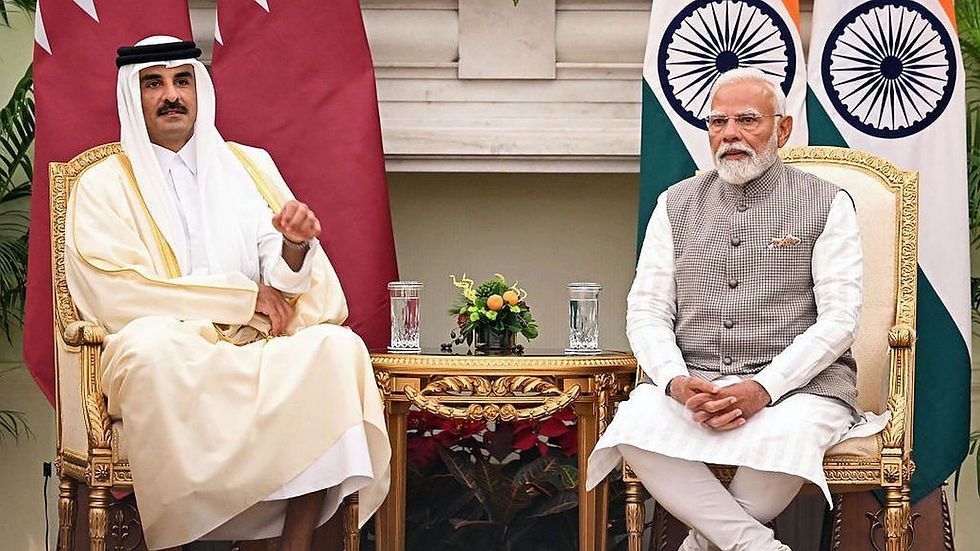Qatar and India Compete to Host 2036 Olympics
- jaygreene81
- Aug 6, 2025
- 2 min read

Qatar are competing with India for the right to host the 2036 Summer Olympics and bring the global tournament to the Middle East for the first time. The contest contrasts Doha's established infrastructure and experience in hosting significant events with Ahmedabad's scale, ambition and transformative vision. Doha is presenting itself as fully prepared, highlighting its successful hosting of the 2022 FIFA World Cup and various world championships in Olympic sports over the past two decades. It also boasts that most of the proposed Olympic venues have already been built and tested at the highest level.
This rivalry goes beyond mere technical readiness; it represents a clash between Qatar's desire to deliver a well-crafted, polished experience in line with its National Vision 2030 and India's ambition to use the Olympics as a catalyst for extensive infrastructure development and regional improvement as part of its long-term strategic objectives. In Qatar's narrative, hosting the Olympics would culminate a series of major global events and solidify Doha's status as an international sports hub. For India, it would symbolise social change, elevate domestic sports and establish the country as a leader in global sporting governance.
Should Qatar succeed, it would be the first time the Olympic Games are held in the Middle East, marking a significant milestone for Arab nations and the wider region. A successful bid would enhance Doha's reputation not only as a venue operator but also as a model of how sports can project soft power, foster global connectivity and promote social cohesion. The Games in Qatar would likely be framed as an Arab Olympic model, driven by values of openness, inclusion and a sustainable legacy, aimed at uplifting regional youth, tourism and international diplomacy.
For the broader Middle East, a successful bid from Qatar would likely lead to substantial investments in stadiums, transportation, hospitality, sports education and media infrastructure. It could accelerate the growth of domestic sports development, from grassroots initiatives to elite athlete programs, inspiring other Gulf states to pursue their own sports ambitions with greater intensity.





